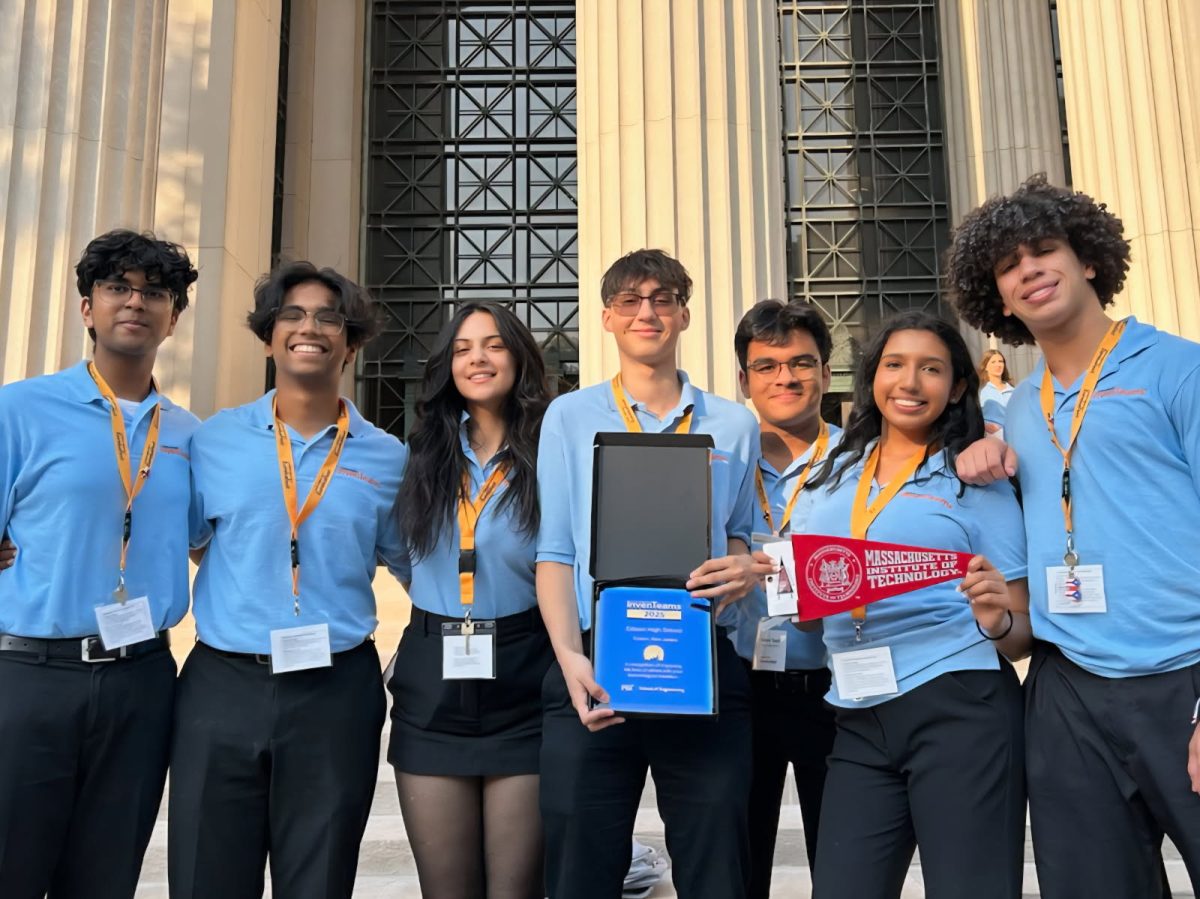As the cold winter months usher in the warm spring, many EHS students spend these long, hot days, characterized by cherry blossoms, outdoor events, and new releases—you guessed it—studying. In the first two weeks of May, a dark shadow takes hold of Edison High, sending students into a panic, teachers into stress, and clubs into a drought. It is officially AP week.
This year, Edison High administered 29 AP exams. While most of these test takers have spent a year of class time on these subjects, some have self-studied. Regardless, both groups of students spent the past few weeks reviewing material, often sacrificing their sleep, social life, and extracurriculars.
“Around April/May, I completely delete social media, and stop attending club meetings to create time for my APs. Around AP week, I start pulling all nighters—chugging Celsius,” said Ritik Gera ‘26, a student taking the AP US History (APUSH) and AP Physics I tests.
Other students echo Gera’s sacrifices during this time.
“I decided to give up social media and limited going outside for fun. In addition to this, I also had to limit my time with family because I spent most of my days studying,” said Aashi Tamboli ‘26, who took the same tests as Gera.
“Usually, I prioritize my social life as well as my academic life. However, I had to give that up for a few weeks prior to the exam. As far as school work goes, I finished most of my work for other classes in school so I could focus on APUSH when I got home,” said Aanya Jariwala ‘26.
On the other hand, some students view AP season as more of a balance.
“I stay off of social media and prioritize one to two hours per day specifically for review,” said Mahita Devarakonda ‘27, an AP Biology test-taker. “I strive to make my weekends as free as possible so I can have time to review. I don’t fully give up on any commitments I have around this time, but I do adapt my schedule around my AP.”
Teachers notice this shift in their students, and actually discourage the last minute mania.
“My students absolutely feel the pressure during AP week, because my students have APUSH and AP Chem. Those two tests are formidable,” said Mr. Michael Evans, who teaches AP Chemistry. “The only way to alleviate the stress would be to start studying earlier, and understand that if you put in the time throughout the year, you should not need to cram at the end.”
The process is a bit different for students who choose to self-study. For instance, though Ainie Syed ‘26 attempted to study throughout the year for AP Psychology, she ended up cramming several units two days before the test.
“Though you tell yourself you’re going to study, and you do in part, clubs, sports and actual school work takes precedence throughout the year. Self-studying became reserved for long weekends and holidays,” said Syed.
Reflecting on the additional stress and oftentimes, half-hearted preparation, many teachers discourage self-studying, especially without the proper motivation and tools.
“The majority of students should absolutely not self-study for an AP course to take an exam,” said Evans. “There are a couple of courses in which students succeed, but it is always better to take the course to gain appreciation for the subject matter, especially since we have so many great AP instructors in this building.”
Similarly, Ms. Jennifer Sidorski noticed the recent surge in AP self-studiers, recommending them to carefully pick and choose exams in order to reduce anxiety from their already busy schedules.Nevertheless, Evans and Sidorski acknowledge that many students don’t take these tests for the love of the subject matter, but instead for the coveted college credits they assume they are promised—a sentiment echoed by Gera and Jariwala.
Yet, in reality, sometimes these credits are not accepted, specifically if they do not fall under a student’s preferred major or are not a 4 or a 5. Other times, college freshmen choose to retake classes they tested out of regardless.
For instance, Raina Patel ‘24 explains that though a 5 on AP Chemistry would allow her to skip Gen Chem I and II, she would rather take those courses, as she wants to build a strong foundation for her pre-med journey.
Therefore, it is important to pursue APs for more than just the college credit.
“The most pressing and essential key to AP classes and tests is the way these classes and tests prepare you for post-secondary workloads and experiences and it is essential,” said Sidorski. “There is more value in sweating it and working hard in an AP class and not getting an A but still going through the experience.”
This brings into question whether dedicating time to potential college credits is worth it—especially when it comes at the cost of missed extracurricular or social experiences and, most importantly, sleep. Moreover, APs are meant to teach students time management and college preparedness skills. Yet isolating for major tests is not a strategy that carries effectively into adulthood, contradicting the class’ purpose.
“In recent years because of various outside factors I think students stress more and sometimes put less time into their AP prep and classes,” said Sidorski. “Students should take AP classes because they have a passion for the subject and want to challenge themselves because it is and should be a challenge.”
An important, if sometimes overlooked, part of the college search process is confirming which schools accept AP credits, as well as the grade necessary for acceptance. This can and should guide students’ decisions on test-taking and the process that goes along with it.
“Georgia Tech basically took all my credits, and I used them to knock off a whole year of college. For me, the stress was worth it, because of the payoff I get now,” said Madhav Mandala ‘24. “But, if it is negatively impacting you, you need to re-evaluate that for yourself. Understand your limits, so that you don’t crash and burn. Remember, your life isn’t dictated by a couple of exams. Yes they help, but they are never worth destroying yourself over.”


















































































